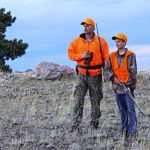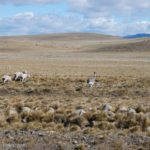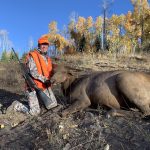Turning over federal lands to the states would be a huge blow to hunting and the funding that supports wildlife conservation.
Wouldn’t you love to own several hundred million acres of game-rich mountains, forests, and plains, crisscrossed with trout-streams and always open for you to hunt, hike, camp, or ride on? Guess what—you already do. You, I, and every other citizen of this great country own 640 million acres of some of the most incredible wildlife habitat in the entire world. I bet you’ve hunted on some of it, since 72 percent of sportsmen who hunt in the West hunt on public lands. I’m one of them—I killed a cinnamon-phase black bear and my first elk on national forest land in western Montana, and I’ve been fortunate to hunt in many other national forests over the years.
There’s a small but vocal bunch of people right now who want to take all that great hunting land away from you. Of course, they’re not telling you they want to take your land away. They’re saying they want to take land away “from the federal government.” Um, excuse me, but last time I checked, federal lands, although they are managed by the federal government, are owned by us. You, me, our sons, daughters, nieces, nephews, and grandkids.
Part of the reason for this push is because the federal government is doing an abysmal job of managing our land right now. That’s not entirely their fault, however. Despite a federal budget that is increasing by leaps and bounds, the Forest Service and BLM coffers have been chronically underfunded for years, especially their crucial but unglamorous programs geared toward timber management, habitat restoration, and forest health.
Legislatures in a number of western states have recently introduced bills that seek to transfer ownership of our federally managed lands to state governments. There are also a couple of bills floating around the House of Representatives right now along the same lines, including HR 3650, sponsored by Rep. Don Young (R-Alaska), which would allow individual states to acquire, own, and operate millions of acres of national forests.
OK, you say, what’s so bad about the states owning the land? I understand the question. After all, when I lived back East, I hunted on lots of state-owned land, and it was great. Having lived and hunted in both regions, though, I can tell you that the West is very different than the East in the way public lands are considered and managed. In western states, state-owned lands are not necessarily synonymous with “public lands.” They’re “trust” lands, set aside for generating revenue, and often not open to the public at all. In Colorado, for example, 80 percent of state lands are leased for commercial use and are not open to the public for recreation.
The real problem, though, is that no state can afford to manage all that land. States are simply not equipped to shoulder the enormous costs associated with fighting wildfires, maintaining roads and trails, treating noxious weeds, and conducting habitat restoration. For example, a recent study showed that Idaho would run a deficit of $111 million per year if it were to take on management of just half of the federal lands within its borders.
You think the feds are doing a bad job? The states, struggling with budget issues, would almost certainly cut their losses pretty quickly and sell it off—and there is no shortage of willing buyers salivating for these lands to go on the market: billionaires, foreign corporations, and resource-extraction interests. Once privatized, these lands will be off limits to most sportsmen forever.
This may sound alarmist, but it’s not, as hunters in Oregon are finding out. Two years ago, their state sold part of the 92,000-acre Elliott State Forest, prized by generations of black-tailed deer hunters, to a timber company because it could no longer afford to manage it. Most of the sold-off portion is already closed to the public, and the state put the remainder of the forest on the auction block this year. Fact is, western states have a long history of selling off state lands to the highest bidder. In an extreme example, Nevada only has 3,000 of its original 2.7 million acres of state-owned land left.
In study after study, people cite lack of access to places to hunt as the major reason they don’t hunt more—or at all. What would happen if almost all of our public hunting access was taken away or sold off? Rural economies that depend on outdoor recreation would collapse. Hunter numbers would drop like a rock—and with them, the vast majority of the money that supports wildlife management in the United States. Our entire North American Model of Wildlife Conservation depends on hunters being able to hunt—and they do that, more than anywhere else, on public land. Fewer hunters mean fewer hunting licenses sold, fewer hunting rifles purchased, and less money going into wildlife agency coffers and Pittman-Robertson funds. That translates into less money for habitat conservation and wildlife management.
Idaho Republican Mike Simpson testified in a hearing on the Forest Service budget in February. “Let me tell you why people live in Idaho,” he said. “They like Idaho because they love their public lands, and the access they provide to places to fish and hunt.” Simpson acknowledged the problems with federal land management, but made a good analogy: “It’s like a landlord relationship. You’re always P.O.’ed at the landlord. If we turn this land over to the state, we’d be P.O.’ed at the state.”
Simpson argued that a better solution would be for Congress to restore reasonable funding to the Forest Service so it can go back to properly managing our land. Now that’s something that we, the proud owners of 640 million acres, can get behind.











